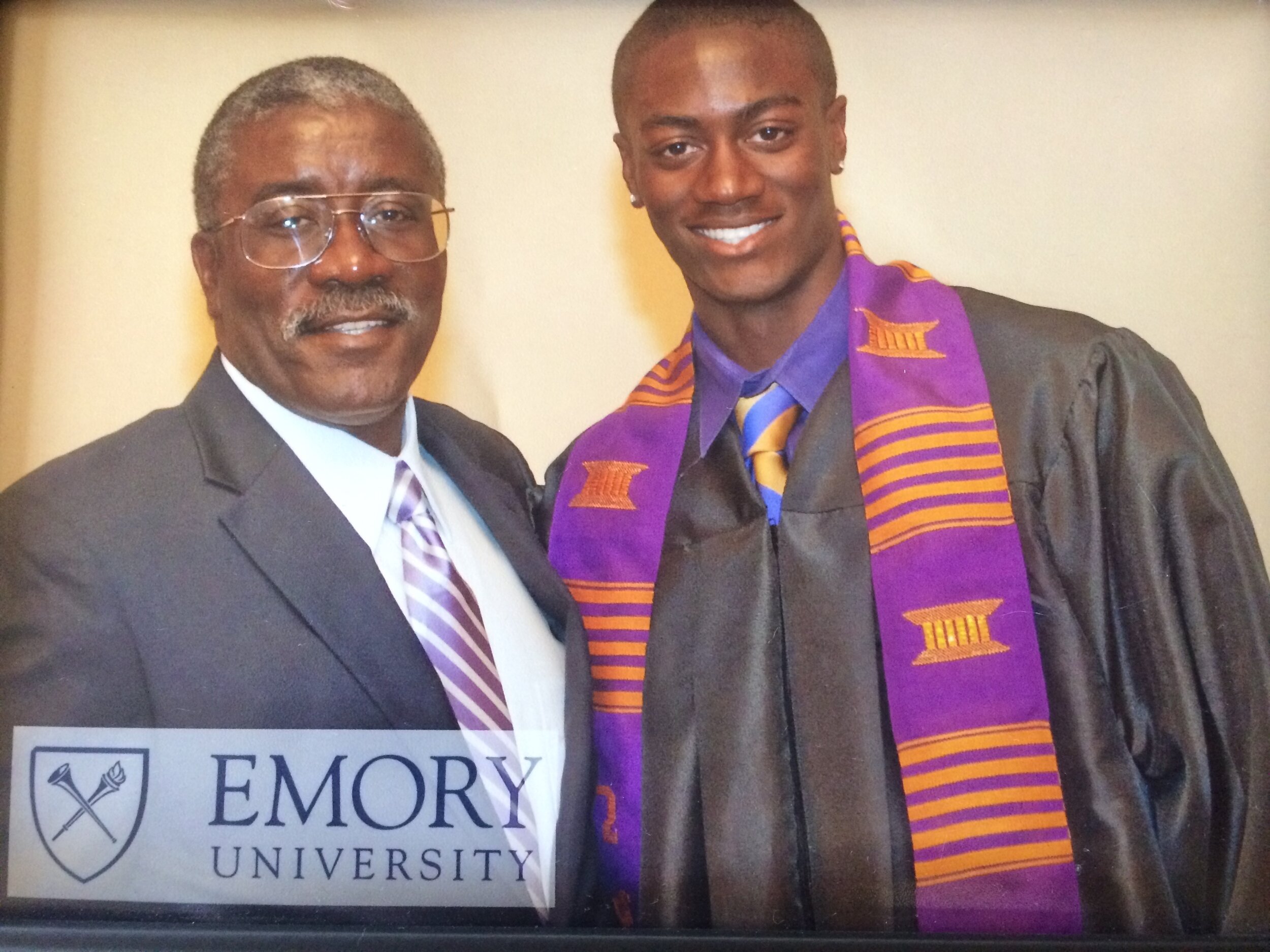Visible Man: An Illumination of My Black Father
“I am invisible, understand, simply because people refuse to see me.” The subtle yet remarkable line from Ralph Ellison’s book Invisible Man published in 1952 continues to be a declarative voice in today’s society: Black men do not play a role in raising their children. There are so many, including my grandfather and my own father, who have proven this stigma to be incorrect.Despite being considered invisible, black fathers have remained beautiful statues to emulate for their children. It was the year 1972 and a young black man, trunk packed and ticket in hand, boarded a bus headed towards Philadelphia with his parents’ directives echoing in his head’— “Work hard and good luck, son.” For the first time in his eighteen years of life Thomas Campbell was leaving home in pursuit of a college degree—the first of his siblings.The opportunities many black fathers have generated are now profoundly evident in the accomplishments of their children. One of eight children, Thomas Campbell was born in 1953 in the Northeast corridor of Washington D.C. A year after his birth in 1954, the Supreme Court reversed Plessy in Brown v. Board of Education of Topeka declaring segregation in public schools unconstitutional. Fifty-three years later, I was graduating as one of a few African-American students from a private high school in Washington D.C.—a vicarious atonement of what may have been for my father had his parents been able to afford the tuition when he was accepted to a similar school. “I wanted you and your sister to have more than I could have ever dreamed of as a kid. When I grew up my family never had a car and never went on family vacations,” he remarked.There are a multitude of young black men changing the world owing the qualities that have made them successful—dedication, commitment, and perseverance—to their black fathers. “Jason, remember you can be whatever you want when you grow up.” As he tightened my tie on that Easter morning looking his ten-year-old son in the eye. “If you put your mind to it, then it’s yours.” Nineteen years later as I climbed the six shallow stairs in the auditorium at my medical school graduation ceremony my father’s words reverberated. A story nothing short of recurrent and delivered dreams: receiving a private school education followed by three more degrees—the last one permanently attaching the initials MD to my last name. What even I struggle to fathom is what my father must have felt when I walked across that stage and was declared a ‘Doctor.’The magnificence of my achievement truly belongs to my father. Despite having grown up in a home where his own father could neither read nor write he journeyed to earn his law degree. Subsequently, he cemented a path for me and my sister to earn five degrees between the two of us. My father’s example serves as a declaration for my sister and I that boundaries do not exist. Like a multitude of black fathers, Thomas Campbell exemplifies a vision of the world where the finish line is not dictated by the starting line.Once invisible men—now visible. They are black fathers.
Like a multitude of black fathers, Thomas Campbell exemplifies a vision of the world where the finish line is not dictated by the starting line.Once invisible men—now visible. They are black fathers.
